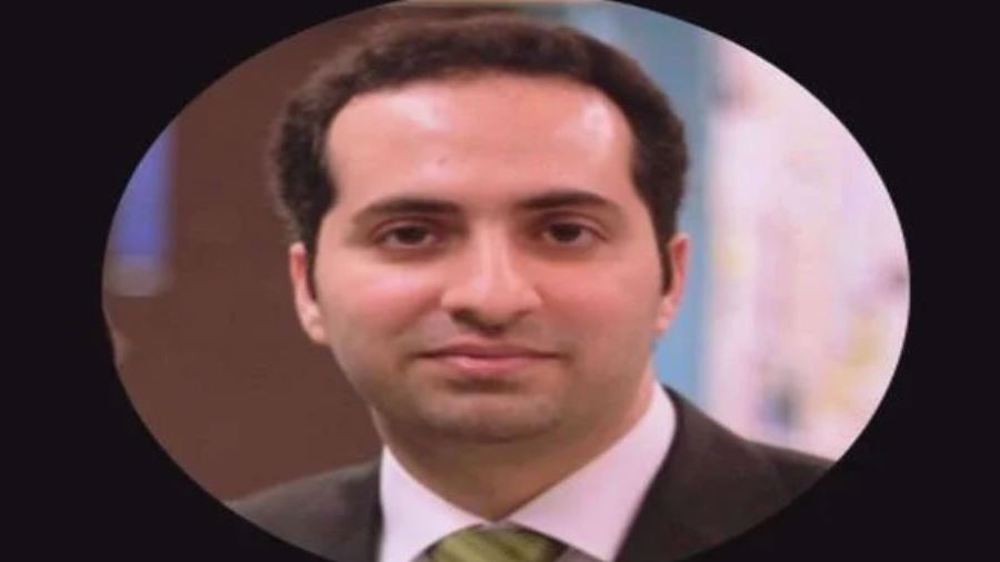Iran committed to peace, stability, development of Afghanistan: Envoy
Iran’s ambassador to the United Nations has reaffirmed Tehran’s commitment to peace and stability in Afghanistan and the development of the neighboring country, saying Iran is prepared to help its Afghan neighbor in that regard.
Majid Takht-Ravanchi said Iran and Afghanistan enjoy common religious, cultural, linguistic and historical backgrounds and the stability, socio-cultural development and economic growth of both countries are intertwined and mutually reinforcing.
“As our president stated very recently, we consider Afghanistan’s stability as our own stability,” he noted while addressing a Thursday meeting of the UN Security Council.
He added that the Islamic Republic of Iran is committed to contributing to a more secure and prosperous Afghanistan through further enhancement of relations between two nations.
The Iranian envoy said Afghanistan’s decades-long insecurity and instability can end only through a comprehensive and inclusive Afghan-led and Afghan-owned peace process, involving all Afghan factions, including the Taliban, supported by neighboring, regional and international partners.
“The peace process must preserve and promote the past achievements, particularly the present Afghan Constitution, the people’s right to self-determination through elections, the right of ethnic and religious minorities and women, as well as the commitment to combating terrorism.”
However, Takht-Ravanchi added, as peace and violence cannot go hand in hand, to reciprocate the good will of Afghanistan’s government in the peace talks, the Taliban must halt its attacks against Afghan defense and security forces.
“We support the peace talks and believe that its successful conclusion requires flexibility and patience by all sides, placing the interests of the people of Afghanistan above all other interests.
As we stated to Special Representative of UN Secretary-General for Afghanistan, Deborah Lyons, in her recent visit to Tehran, Iran continues to call for further engagement of the United Nations in the peace process and stands ready, in coordination with the United Nations, to further contribute to this process.
“Iran believes that the successful conclusion of Afghan peace talks requires flexibility and patience by all sides, placing the interests of the people of Afghanistan above all other interests,” he noted.
Afghanistan’s security situation remains a source of concern due particularly to terrorist acts perpetrated by groups like Daesh, whose presence is a serious threat to the security of Afghanistan and the region.
“As a manifestation of external interference, the presence of US-led foreign forces is another source of instability in Afghanistan. However, as many countries have stressed, their withdrawal must be orderly and responsible and must not lead to a security vacuum in Afghanistan. Accordingly, prior and simultaneous to the withdrawal of foreign forces, Afghanistan’s military and security forces must be supported and strengthened,” Takht-Ravanchi added.
He also urged effective assistance to Afghanistan in combating the illicit production of and trafficking in narcotic drugs as a source of financing terrorism and other crimes.
“A durable peace in Afghanistan cannot be established without promoting its economic conditions, which requires strong regional and international support,” he added.
He said Iran is hosting over 3 million Afghans despite facing the savage US economic war, and has promoted economic cooperation with Afghanistan.
“Linking this land-locked country to high seas and other countries through Iran’s Chabahar Port is a prominent example of close partnership between the two countries,” he said.
Iran’s UN envoy also pointed to the inauguration of the strategic railroad connecting Iran’s Khaf to Afghanistan’s Herat.
“Just last week, we inaugurated the Khaf-Herat railway, which connects Afghanistan’s railway to Europe through Iran. The presidents of both countries called the inauguration of this project a historical event, further strengthening bilateral and regional economic cooperation, thus enhancing the foundations of a durable peace and stability in Afghanistan,” Takht-Ravanchi noted.
The joint railway project linking eastern Iran to western Afghanistan was inaugurated on December 10 with presidents of the two neighboring countries delivering remarks through a video-conference and expressing hope it will enhance trade links across the region.
The 225-km railroad project includes four phases that are currently under construction. About 78 km of the project, which includes two phases, is on Iran's soil and the rest in Afghanistan.
Khaf-Herat, which is part of the Iran-Afghanistan rail corridor, started in the fiscal year of 2007-2008 and connects Iran’s eastern city of Khaf to Afghanistan’s western city of Ghoryan.
Completion of the project will affect transit facilities in Afghanistan and solve many investors' and merchants’ problems in the country.
Implementation of the project will also show the importance of Iran's position once again as it makes a boom in regional trade - exports and imports. The railway project will also contribute to the development of tourism.
‘Ethnic cleansing’: Hamas blasts Israeli attacks on Gaza hospital amid intl. silence
Saudi delegation meets HTS leader at presidential palace in Damascus
Relentless Israeli ceasefire violations justify need for self-defense: Lebanese MP
Tel Aviv tells Damascus Israeli forces will remain in occupied territory: Report
Dec. 22: ‘Axis of Resistance’ operations against Israeli occupation
‘Abhorrent’: Oxfam says only 12 trucks delivered aid in North Gaza since Oct.
VIDEO | Leader receives religious eulogists on Hazrat Fatima birth anniv.
Pope Francis slams Israel’s ‘machine-gunning’ of Gaza children













 This makes it easy to access the Press TV website
This makes it easy to access the Press TV website